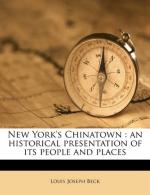|
This section contains 543 words (approx. 2 pages at 300 words per page) |

|
By all accounts divorce was a privilege of the husband and was referred to as Xiu Qi (dismissing a wife). Legally a woman could not divorce her husband; the idea of a wife doing so, for whatever reason, was considered absurd and preposterous. Socially, divorce was shameful for a woman but not for a man. A man's commitment to his parents carried more weight than that to his wife. It became highly justifiable that a man divorce a wife who disrespected his parents and disrupted the family harmony. Chen Yi, an eminent scholar-official of the Song dynasty (960—1279), discusses the ethics of divorce with his students in the following passage:
Someone asked, "Is it proper to divorce a wife?"
[Ch'eng I] answered, "When a wife is not worthy, there is no harm in divorcing her. For instance, [Confucius' grandson] Tzu-su once divorced...
|
This section contains 543 words (approx. 2 pages at 300 words per page) |

|




